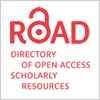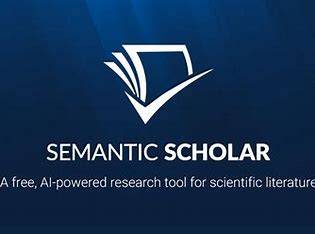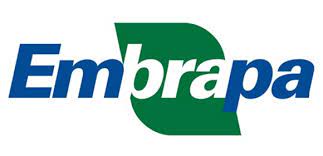PSYCHOPEDAGOGICAL SYSTEMATIZATION OF THE SCOPE WAYS OF LEARNING
DOI:
https://doi.org/10.47820/recima21.v4i4.3012Keywords:
psychopedagogy, education, protagonism, ways of learningAbstract
This research is justified by the need for science and ethics to systematize the scope of relevance of psychopedagogical advances in relation to ways of learning, since it is still a scope that depends on a lot of study for psychopedagogy to be established relevantly autonomous. Its scopes have been cut for institutional learning in a business environment and, also, clinic focused on protagonism in the school environment. The problem is with what relevance psychopedagogy is currently able to attract the attention of the aforementioned sciences, fields, ethics and objectives to be accepted as a collaborator in the specificity of ways of learning considering the epistemological principle that there can be no learning without teaching and no teaching without learning considering its interrelationship with the other fields listed here. The methodology is qualitative, based on the systematization of research conducted in the last 10 years. The paradigm is one of complexity due to the established objective that has as prerogative the complexity of the being that learns. The expected result is the presentation of a systematized scope capable of corroborating with the ways of learning of the cognoscent being to expand the relevance of psychopedagogy to serve a complex society in its way of learning and, also, of the individuals who compose it in a way increasingly recognized and desired for the positivity of the results obtained from the use of its proposals related to the scope presented here.
Downloads
References
Altmicks, A. H. (2014). Principais paradigmas da pesquisa em educação realizada no Brasil. Revista Contrapontos, 14(2), 384. https://doi.org/10.14210/contrapontos.v14n2.p384-397
Barrera, S. D. (2022). O uso de jogos no contexto psicopedagógico. Pessic: Revista Psicopedagogia, 37(112), 64–73. https://doi.org/http://dx.doi.org/10.5935/0103-8486.20200004
Biasotto, L. C., Fim, C. F., & Kripka, R. M. L. (2020). A teoria da aprendizagem significativa de David Paul Ausubel: Uma alternativa didática para a educação matemática. Brazilian Journal of Development, 6(10), 83187–83201. https://doi.org/10.34117/bjdv6n10-668
Costa, R. F. (2019). Jogos e ludicidade na aprendizagem da criança. REP’s Revista Eventos Pedagógoicos, 10(1), 439–450. https://doi.org/10.30681/2236-3165
Daleffe, G. P., & Camargo, G. (2022). Contribuições da psicopedagogia institucional na formação de professores: uma proposta de intervenção psicopedagógica. Criar Educação, 11(1), 105–121. https://doi.org/10.18616/ce.v11i1.5421
Dantas, H., Oliveira, M. K., & Taille, Y. de La. (1992). Piaget, Vigotski, Wallon: teorias psicogenéticas em discussão. Summus.
Fidalgo, F. S. R., Fidalgo, N. L. R., Horta, R., Pinto, O. L., Mill, D. R., Santiago, C. F., Viana, I. de S., Coelho, M. de L., Amaral, A. L., Chamon, M., Paschoalino, J. B. de Q., Matias, V. C. B. de Q., Negra, C. A. S., Gomes, M. A. de F., Fidelis, J. R. F., Pinho, Gonçalves, M. das G., Cota, T. C. M., Vieira, F. M. S., … Rabelo, A. M. P. (2008). O desafio do processo formativo para a construção de ambientes de aprendizagem na modalidade de educação a distância. Extra-Classe - Revista de Trabalho e Educação / Sindicato Dos Professores Do Estado de Minas Gerais, 1(1), 1–200. https://www.researchgate.net/profile/Raquel-Almeida-Moraes/publication/238669249_DISCIPLINAS_ON-LINE_algumas_reflexoes_sobre_a_utilizacao_das_TIC_nos_cursos_de_graduacao/links/02e7e527315876b447000000/DISCIPLINAS-ON-LINE-algumas-reflexoes-sobre-a-utilizac
Freire, P. (2006). Pedagogia da Autonomia: saberes necessários à prática educativa. Paz e Terra.
Gardner, H. (1995). Inteligências Múltiplas: a Teoria na Prática. Artes Médicas.
Grossoehme, D. H. (2014). Overview of Qualitative Research. Journal of Health Care Chaplaincy, 20(3), 109–122. https://doi.org/10.1080/08854726.2014.925660
Ivic, I. (2010). Lev Semionovich Vygotsky (MEC/UNESCO (ed.)). Massangana. http://www.dominiopublico.gov.br/download/texto/me4685.pdf
Latansio, V. D. (2010). A significação na epistemologia genética: contribuições para uma teoria do conhecimento [Universidade Estadual Paulista “Júlio Mesquita Filho”]. www.marilia.unesp.br/Home/Pos-Graduacao/Filosofia/Dissertacoes/latansio_vd_me_mar.pdf
Matusov, E., & Hayes, R. (2000). Sociocultural critique of Piaget and Vygotsky. In New Ideas in Psychology (pp. 215–239). School of Education, University of Delaware.
Mores, R. C. (2001). Pessamento e linguagem: Lev Semenovich Vygotsky (1896-1934). Riendo Castigat Moraes. http://www.ebooksbrasil.org/adobeebook/vigo.pdf
Morin, E. (2001). Seven complex lessons in education for the future (S. and C. O. by the United Nations Educational (ed.)). UNESCO. https://unesdoc.unesco.org/ark:/48223/pf0000123074
Pavão, S. M. de O., & Souza, C. R. S. e. (2018). Abordagem psicopedagógica do aprender na educação superior. Pepsic Revista Psicopedagogia Versão Impressa, 35(106), 51–60. http://pepsic.bvsalud.org/pdf/psicoped/v35n106/07.pdf
Perazzolo, O. A., Pereira, S., & Santos, M. M. C. dos. (2013). Acolhimento e desenvolvimento socioturístico: para uma psicopedagogia do laço social. X Seminário Da Associação Nacional Pesquisa e Pós-Graduação Em Turismo 9 a 11 de Outubro de 2013 – Universidade de Caxias Do Sul, 1–16. https://www.anptur.org.br/anais/anais/files/10/[68]x_anptur_2013.pdf
Perrenoud, P. (1999). Profissionalização do professor e desenvolvimento de ciclos de aprendizagem. Cadernos de Pesquisa, 108, 07–26. https://doi.org/10.1590/S0100-15741999000300001
Piaget, J. (1971). A Epistemologia Genética. Editora Vozes: Tradução: Nathanael C. Caixeiro.
Piaget, J. (1986). Nascimento da Inteligência na Criança (1a ed.). Publicações Dom Quixote.
Piaget, J. (1999). O pensamento e a linguagem da criança. Martins Fontes.
Queiroz, S. S. de, Dias, L. P., Chagas, J. D., & Nepomoceno, P. dos S. (2011). Erros e equilibração em psicologia genética. Psicologia Escolar e Educacional, 15(2), 263–271. https://doi.org/10.1590/S1413-85572011000200008
Rego Rockembach, G., & Hees Garré, B. (2018). O WhatsApp e os novos modos de aprender dos Jovens na atualidade. Revista Thema, 15(4), 1404–1413. https://doi.org/10.15536/thema.15.2018.1404-1413.1076
Rosário, A. K. da S. A. do, Siqueira, F. da S., & Santiago, S. F. dos S. (2022). A importância do lúdico para o diagnóstico e intervenção no processo de ensino aprendizagem inclusivo. Revista Ibero-Americana de Humanidades, Ciências e Educação, 8(9), 1067–1074. https://doi.org/10.51891/rease.v8i9.6937
Santos, W. de S. (2021). Intervenção psicopedagógica no tocante à indisciplina em sala de aula. Revista Ibero-Americana de Humanidades, Ciências e Educação, 7(12), 815–822. https://doi.org/10.51891/rease.v7i12.3505
Saravali, E. G., & Oliveira, F. N. de. (2020). A Teoria Piagetiana no Contexto Psicopedagógico: sentidos e atualizações pós 40 anos. Clareira - Revista de Filosofia Da Região Amazônica, 7(1), 207–232. https://periodicos.unir.br/index.php/clareira/article/view/5903/3686
Silva, Moisés Lopes da. (2023). Psicomotricidade: motricidade fina na formação de professores. RECIMA21 - Revista Científica Multidisciplinar - ISSN 2675-6218, 4(1), e432901. https://doi.org/10.47820/recima21.v4i1.2901
Silva, Moises Lopes. (2020). Emoções cognoscentes (1a ed.). Editora Appris.
Souza, R. A. (2007). Teoria da literatura. Ática.
Stoltz, T. (2005). Mídia, cognição e educação. Educar Em Revista, 26, 01–10. https://doi.org/10.1590/0104-4060.389
Downloads
Published
How to Cite
Issue
Section
Categories
License
Copyright (c) 2023 RECIMA21 - Revista Científica Multidisciplinar - ISSN 2675-6218

This work is licensed under a Creative Commons Attribution 4.0 International License.
Os direitos autorais dos artigos/resenhas/TCCs publicados pertecem à revista RECIMA21, e seguem o padrão Creative Commons (CC BY 4.0), permitindo a cópia ou reprodução, desde que cite a fonte e respeite os direitos dos autores e contenham menção aos mesmos nos créditos. Toda e qualquer obra publicada na revista, seu conteúdo é de responsabilidade dos autores, cabendo a RECIMA21 apenas ser o veículo de divulgação, seguindo os padrões nacionais e internacionais de publicação.

 Clique para ver detalhes
Clique para ver detalhes 











